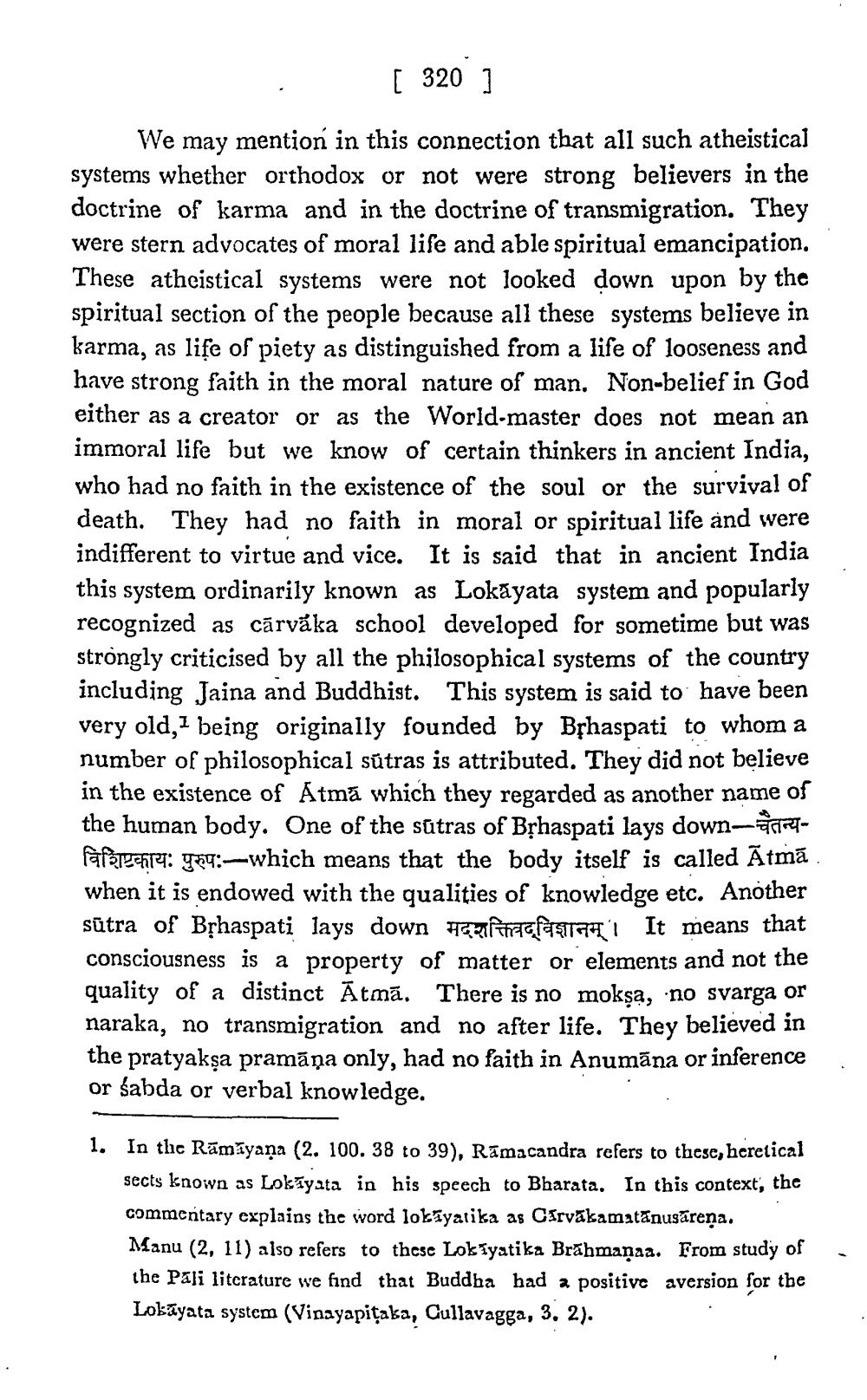________________
[ 320 ]
We may mention in this connection that all such atheistical systems whether orthodox or not were strong believers in the doctrine of karma and in the doctrine of transmigration. They were stern advocates of moral life and able spiritual emancipation. These atheistical systems were not looked down upon by the spiritual section of the people because all these systems believe in karma, as life of piety as distinguished from a life of looseness and have strong faith in the moral nature of man. Non-belief in God either as a creator or as the World-master does not mean an immoral life but we know of certain thinkers in ancient India, who had no faith in the existence of the soul or the survival of death. They had no faith in moral or spiritual life and were indifferent to virtue and vice. It is said that in ancient India this system ordinarily known as Lokāyata system and popularly recognized as cārvāka school developed for sometime but was strongly criticised by all the philosophical systems of the country including Jaina and Buddhist. This system is said to have been very old, 1 being originally founded by Bfhaspati to whom a number of philosophical sūtras is attributed. They did not believe in the existence of Atmā which they regarded as another name of the human body. One of the sūtras of Brhaspati lays down- fafareehrt: 989:-which means that the body itself is called Atmā when it is endowed with the qualities of knowledge etc. Another sūtra of Bphaspati lays down all trafareti It means that consciousness is a property of matter or elements and not the quality of a distinct Ātmā. There is no mokşa, ino svarga or naraka, no transmigration and no after life. They believed in the pratyakşa pramāņa only, had no faith in Anumāna or inference or śabda or verbal knowledge.
1. In thc Rāmāyaṇa (2. 100.38 to 39), Rūmacandra refers to these, heretical
sects known as Loktyata in his speech to Bharata. In this context, the commentary explains the word lokāyatika as Cirvākamatānusāreņa. Manu (2, 11) also refers to these Loktyatika Brāhmaṇaa. From study of the Pali literature we find that Buddha had a positive aversion for the Lobāyata system (Vinayapitaka, Cullavagga, 3. 2).




